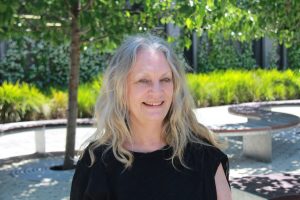Learning Plus
The Value of Student Voice
 To date, the central themes of my articles have focused upon educational research and practices that enhance student learning from an educator’s perspective. An area in education currently gaining traction internationally, is a focus on ‘student voice’ as a means of enhancing teacher pedagogy.
To date, the central themes of my articles have focused upon educational research and practices that enhance student learning from an educator’s perspective. An area in education currently gaining traction internationally, is a focus on ‘student voice’ as a means of enhancing teacher pedagogy.
In April this year, when visiting schools in Finland, it struck me how much emphasis was placed on the importance of student voice – both from principals and teachers. Indeed, some Finnish principals and teachers felt it was fundamental to the success of Finnish schools. As Finns see it, student efficacy and student wellbeing are at the core of student achievement. Student voice is valued and given expression through student councils. This is not tokenism, as their voices feed into senior school leadership meetings and influence a range of areas such as learning spaces and their construction, cafeteria food, environmental concerns, subjects and their provisions and the electives on offer. In their study of student achievement, Yee & Yee (2016), place, student efficacy, student empowerment and student wellbeing at the core of student achievement. By tuning into their ‘voice’, they maintain these key learning behaviours evolve.
Cook-Slather (2006) argued, “Young people have unique perspectives on learning, teaching, and schooling; that their insights warrant not only the attention”, they also argue, “they should be afforded opportunities to actively shape their education.” In 2017, Cook-Sather take this notion further, purporting that “amplifying student voice through uses of digital media, creates the possibility for exchanges between students and teachers across space and time; it supports the development of reflective practice;,and it encourages the embrace of a partnership approach to teaching and learning.”
By creating the conditions conducive to bringing student voice to life I thought I would use my last article for this academic year to amplify our Learning Plus student voices in respect to identifying the learning conditions and provisions that assist them in our Learning Plus classes. Indeed, my students were eager to share their voices and as always their feedback assisted us in reflecting on our own practice. Our students’ perspectives highlight the importance of student voice and provide an opportunity for us to make meaningful contributions for meeting their educational needs based on what they feel and think.
The students’ voices, embedded in this article here, provide feedback with youthful maturity and refreshing honesty. They are articulate in expressing what works for them as they are encouraged and nurtured to develop self-efficacy in their Learning Plus classes.
Now that you have listened to their perspectives, I draw your attention to Burke & Grosvenor’s book (2015), The School I’d Like: Revisited: Children and Young People’s Reflections on an Education for the 21st Century. The book highlights wondrous learning experiences derived from the minds of children and young adolescents. It is remarkable how combining the voices of students and those of educators can create an alternative approach to educational delivery that is uplifting and indeed inspirational.


